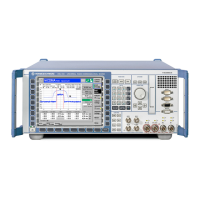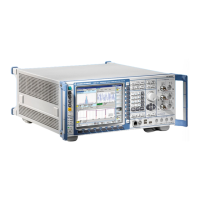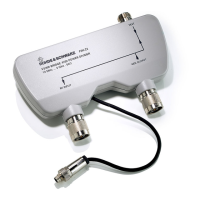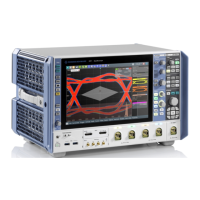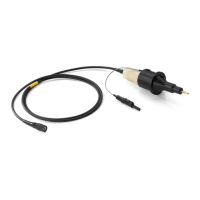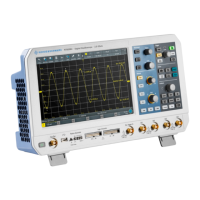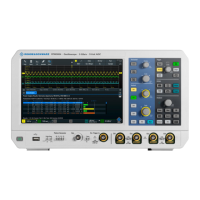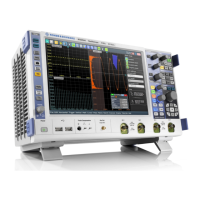CMU Measurement Control
1100.4903.12 5.29 E-8
The STOP state corresponds to the HLT state indicated next to the softkeys controlling a measurement
in manual operation. A STEP state is not defined in manual control.
The three measurement states OFF, STOP, and STEP can be mapped onto the standard SCPI state
IDLE, the RUN state can be mapped onto the SCPI state INITiated. This and the relation between con-
trol commands and measurement states is shown in the following diagram:
STOP
RUN
STEP
*RST,
ABORt
Stepping
mode
STOP
CONTinue,
INITiate
STOP
INITiate
INITiate
INITiate
*RST, ABORt
*RST, ABORt
OFF
SCPI state
INITiated
SCPI state
IDLE
Fig. 5-7 Measurement states and control commands
The measurement control commands are supplemented by the measurement object, i.e.:
INITiate:<meas_obj>
Starts a measurement in the repetition mode set via the CONFig-
ure:<meas_obj>:CONTrol:REPetition command (single shot, con-
tinuous or counting mode, see section Measurement Statistics on page
5.34). The command resets the counters for the evaluation period and sta-
tistics (the latter is not used in RF measurements) to zero, furthermore, all
measurement values are set invalid (INV).
As illustrated in Fig. 5-7, INITiate can be called in any measurement
state. If the measurement is already running (RUN), INITiate aborts
(ABORt) and restarts a running measurement.
The measurement reserves all necessary hardware resources and
switches into the RUN state. If the measurement can not be started due to
a resources conflict it remains in the OFF state, and the measurement
status returned by the FETCh:<meas_obj>:STATus? is ERR. At the
same time the SCPI error –213, Init ignored, is generated.
Possible resources
conflicts
The RF connector is already allocated by another measurement or signal
generator. The other measurement must be switched off first.
Due to the method used for the analysis, two measurements can not be
evaluated at the same time.
Overlapping execution INITiate is implemented as an overlapped command. In contrast to
SCPI specifications, the *OPC command (see Chapter 6, Common Com-
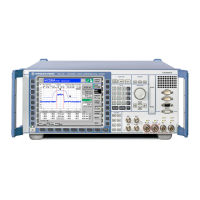
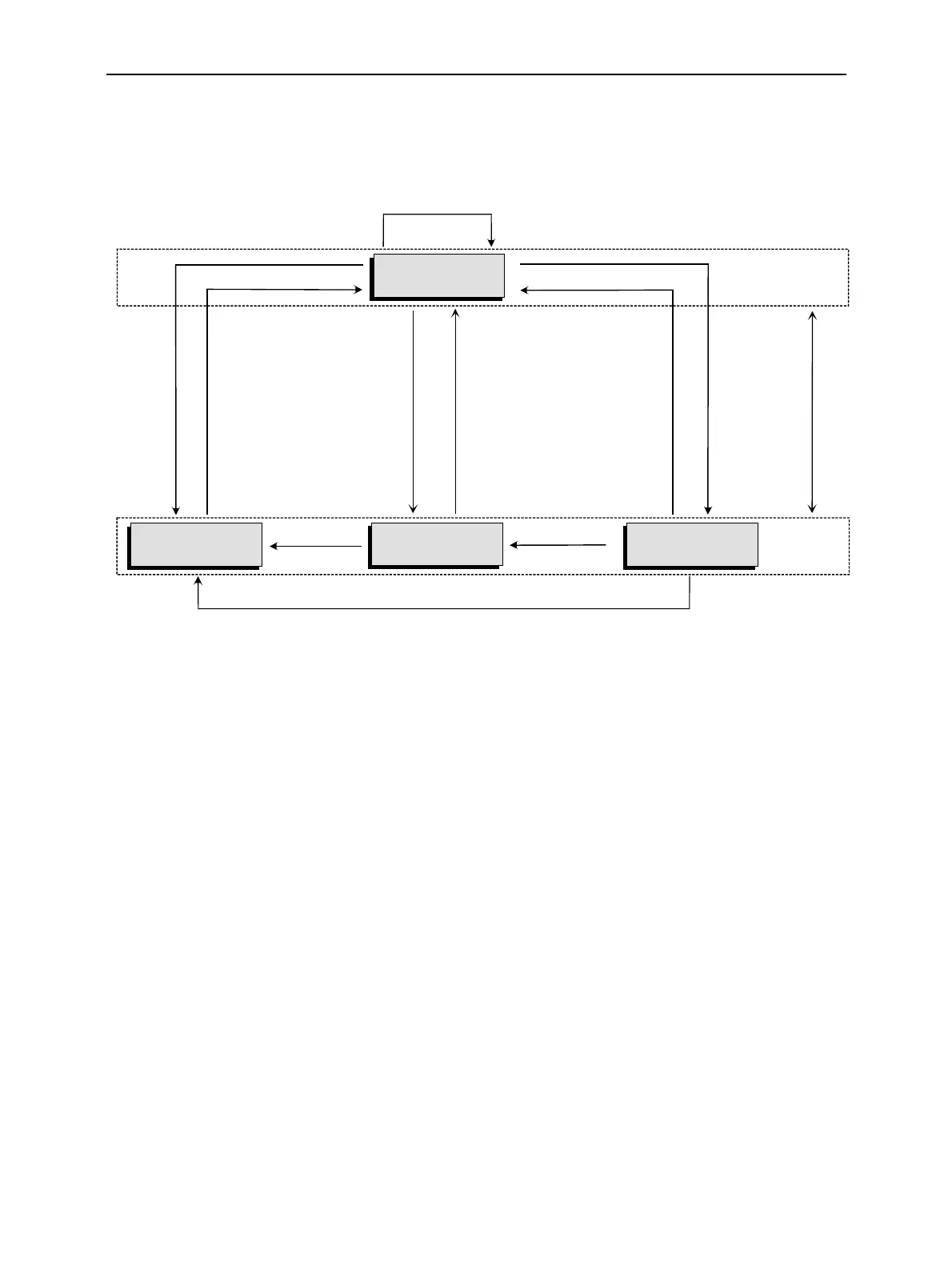